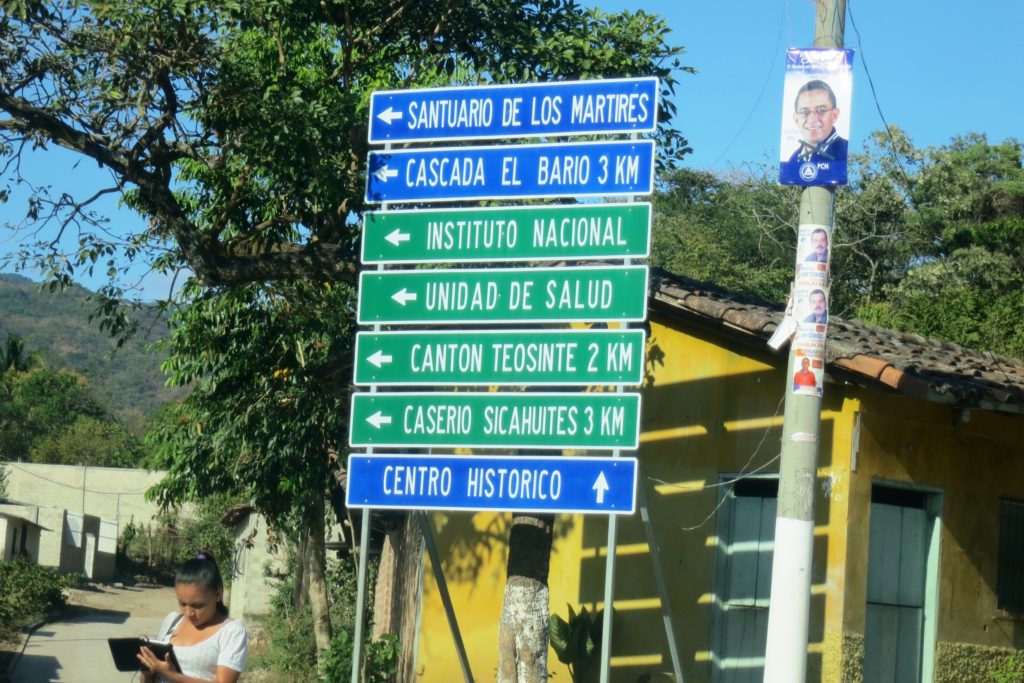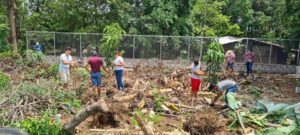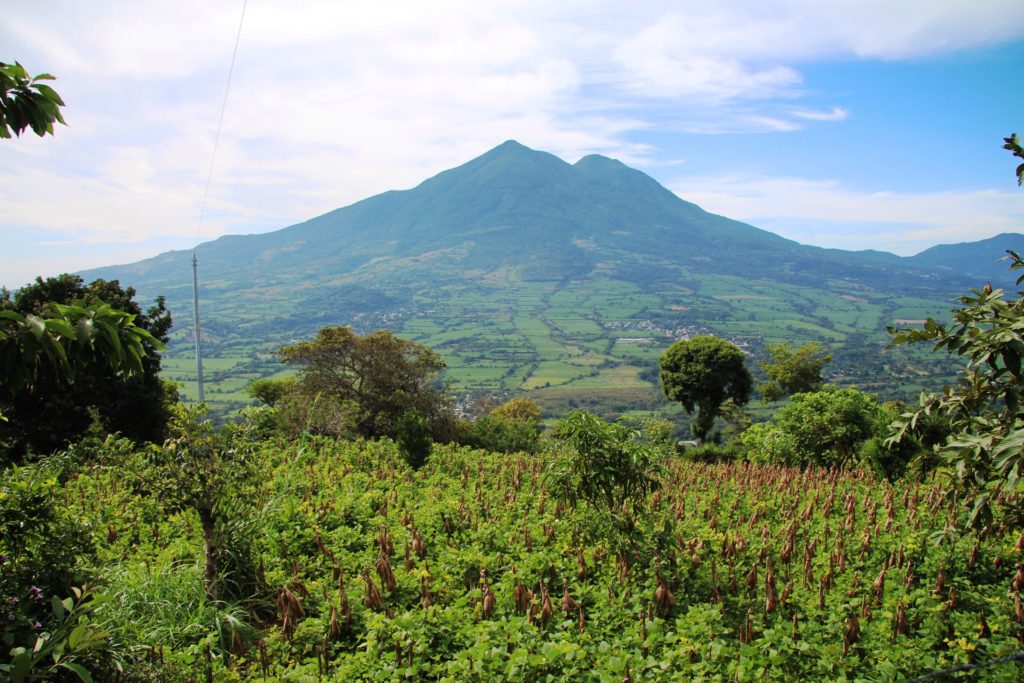
Esta historia se escribe en Español = This story is also written in Spanish here.
Editor’s Note: This is the third or fourth draft of a piece I began writing several years ago. After each draft I sought feedback from others including the family involved, my partner, and my writing group. The overwhelming response was, “Tone it down. You are being too harsh, too political. This is not an op-ed piece.” And so the story has been sitting “dormant” on my desktop staring at me, waiting to be told while I ponder how to re-write it in a way that validates this young woman’s truth yet gives it the credibility it deserves while removing my own personal bias.
Meanwhile, recent immigration policies of our country have fueled and empowered the press to tell the story for me. People knowing the work we do in El Salvador approach us asking, “Did you KNOW?” My response is, “We’ve known for years; the media is just getting wind of it.”
I feel guilty for not sharing it sooner, but it has been difficult to pull back the emotional reins and go back into the original document to remove the parts that I’ve been told could offend a certain group of readers. So in this version, I’ve removed large sections I wrote related to the current administration’s policies and the fact checking I did. I have pared it down to the raw story itself for you, the reader, to decide how you feel.
The fact is this is not an isolated story. You have heard it on the news, and you can be assured it is not contrived or “fake news.” This story is like one of the multitudes you have read or seen on TV in which you have heard the desperate cries of the children at the border, and whose sources have validated as accurate.
My original title was “Each Immigrant Has a Name”
My second title was “Forced to Leave”
Maybe title three is more accurate – “Caught Between Two Countries”
This story of Katarina (a pseudonym used to protect her while she goes through the court systems) is not unique. She is caught between two countries – each one hostile in different ways.
Katarina is a young, bright, college-educated woman. She is gregarious and has an infectious laugh.
Katarina reflects, “I am one of six siblings in my hard-working family whose high expectations and values are ingrained in me. My mother’s side of my family is involved in politics. Each of my mom’s sisters traveled extensively throughout Latin America to learn what they could glean from countries like Panama and Cuba after El Salvador’s long civil war to make things better. My dad is a construction worker.”
At age ten she was elected president of her Salvadoran church’s youth group that recognized Katarina’s bubbly personality and leadership skills as assets. It was in the church that Katarina met a woman from California whose church had a sister relationship with her Salvadoran church. The two formed a close personal relationship over the years, and Katarina became the woman’s “godchild.” Katarina’s godmother describes her as bright, highly motivated, having a wonderful sense of humor, a strong drive and personality.
Katarina was a recipient of one of the California church’s scholarships and Katarina completed four years of university majoring in journalism. She had two more years to attend until the situation became too dangerous for her family to remain in the country. Katarina shares, “In school I enjoyed playing soccer; I was competitive on three separate university teams. Being involved and active in community issues has always been important to me. At the university I produced a documentary for an NGO (non-governmental organization) on women’s health, sexual abuse, and violence. I’ve also marched protesting privatizing water. I have never tried drugs.”
Katrina’s husband drove war-wounded and indigenous people to their medical appointments. She and her husband were very happy in El Salvador, being surrounded by many friends and extended family members and their delightful young daughter.
In short, Katarina is a bright, educated young woman with supportive biological and church families; she was on a professional career track. She and her husband owned a business and were respected members within their community. She loves her birth country, El Salvador, and had no intention of leaving it.
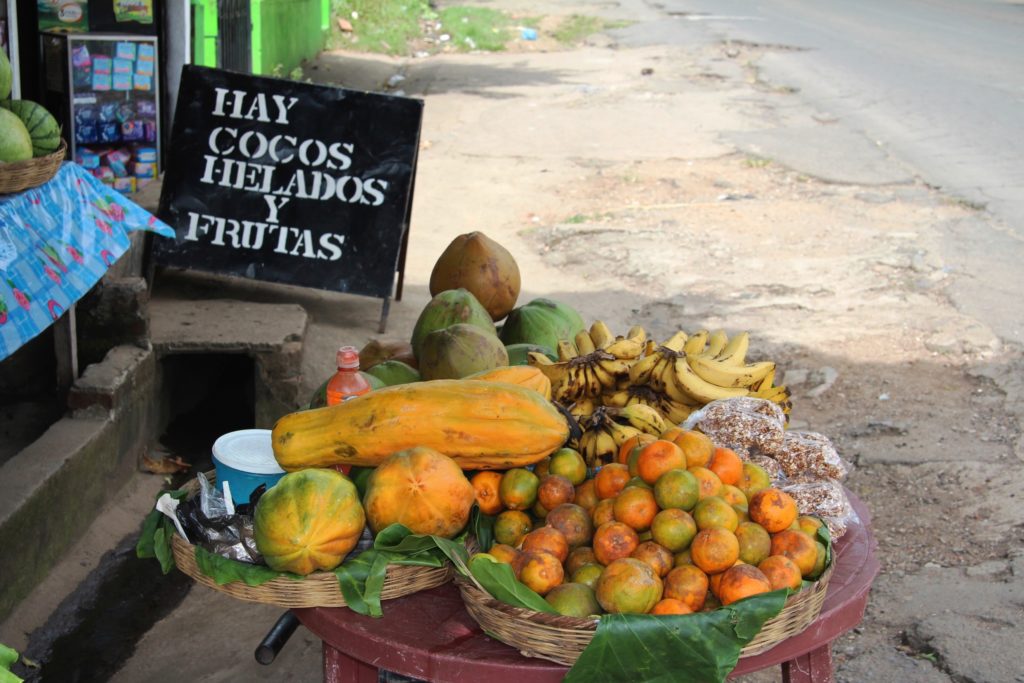
HOWEVER. . .
Like so many communities throughout Latin America, the gangs moved in recruiting, extorting and threatening. After extorting their family business, the gang recruited Katarina’s husband to join the gang, and when he refused, its members threatened the lives of the entire family. Next, the gang moved weapons into their home. This was their breaking point. Her family fled in the dead of night wearing only the clothing on their backs and headed to the border.
The only remaining choice to escape death or being maimed in her home was for Katarina to get into the U.S. undocumented. (There was no time to seek legal means through the U.S. Embassy channels, plus the threat of physical danger by gangs does not qualify as a reason for seeking asylum in the U.S.) Her family made the long, dangerous trip by hiring a series of coyotes (guides), paying their pricey fees which the coyotes split with the drug cartels and various border patrol officers along the way. [Editor’s Note: Sometimes the coyotes are ethical; other times they take advantage of those without other options including raping and leaving the groups with drug cartels to die. Desperate persons whose lives are threatened will take the chance.]
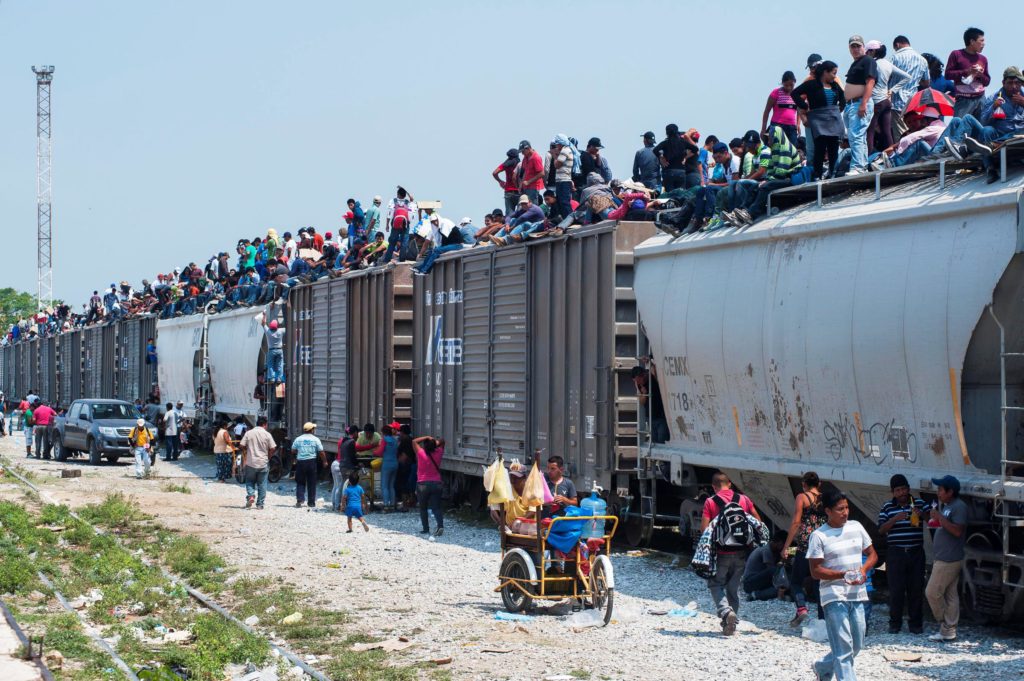
“The Beast”many undocumented people ride north on
After Katarina, her husband, elderly aunt, and two-year-old daughter made the long, arduous journey across the desert through several countries, the Mexican mafia demanded another $100 to cross the Rio Grande. In desperation Katarina called her godmother’s cell phone with the directions to go to a specific location to wire the money to an individual in Mexico whom they assumed to be a member of the Mexican mafia or drug cartel. Dripping wet and scared with the toddler crying over a lost shoe, the family crossed the river and climbed the steep embankment only to find the ICE officials waiting for them at the top to separate them into different groups to go to different detention facilities. Men went to one, elderly to another, women and children to a third.
Katarina’s husband was immediately deported back to El Salvador without a hearing, violating his rights (at that time) as an asylum seeker. Katarina and her daughter were placed in a concrete cell with 20-30 other people in deplorable conditions of the detention camp (The NY Times describes them as “tens of thousands of people in detention camps, similar to the internment of Japanese-Americans during World War II, May 19, 2016) worse than a jail without adequate food, water, clean clothes, proper sleeping arrangements, or legal representation in the intense heat. Disease runs rampant in these conditions, and Katarina and her daughter became very sick and contracted lice. No hygienic products were offered. Only a few metallic space blankets were available for the detainees who were wet and cold; one was pregnant. No translators were offered.
Once caught by ICE, most immigrants remain indefinitely until deportation. Fortunately for Katarina, she had memorized her California godmother’s phone number and insisted on calling her. Her godmother set up an account for Katarina to be able to call her and then began the process of moving sun and earth to get Katarina and her precious toddler out of that detention facility and onto a flight to her home state.
Katarina now lives here in the States after she “illegally” crossed the U.S. border a few years ago in desperation. “My husband got deported as soon as he arrived. If my daughter and I are unable to receive sanctuary with the help of our legal team and are deported back to El Salvador, our lives are once again in danger,” says Katarina. (NOTE: The last I heard her husband later did return to the U.S. and avoided ICE authorities.)
Katarina reflects, “Here in the U.S. I am working several difficult, physically-demanding jobs without benefits. Fruit and vegetable growers are unable to harvest their crops without the immigrants to help. These are jobs most Americans consider too labor-intensive and refuse to work in the hot sun for the time the bosses require for minimum wage. I still work three jobs including at restaurants and in the fields in order to pay my bills. I am taking these jobs until my English skills are more proficient and allow me to finish my degree and work in a more fulfilling career.” When not working, she takes English and history classes.
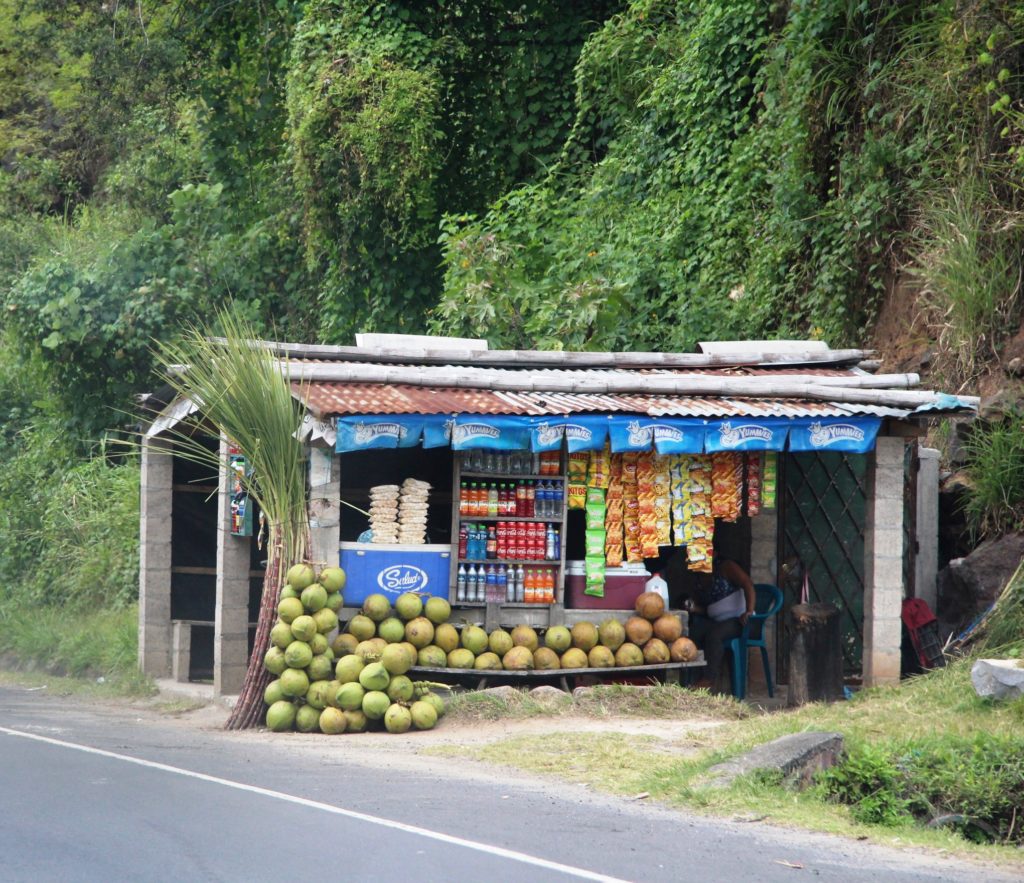
Katarina’s godmother tells us that ICE carries out frequent raids on establishments thought to hire undocumented immigrants forcing everyone to constantly live in fear. “Citizens and noncitizens alike are carrying little red cards stating their constitutional rights.” (Often unethical employers take advantage of the immigrant workers by requiring them to work beyond the agreed upon work week without paying them by threatening to fire them; they exploit their desperation.)
Katarina is jumping through judicial hoop after hoop after hoop within the legal system in an effort to fulfill all requirements to remain in the U.S. She has political and religious asylum hearings that meet only at the state capital, which is hundreds of miles from her home. Those dates are constantly changing which seems to be an effort to discourage immigrants from wanting to continue their struggle. She has other hearings as well and is on the advice of her attorney not permitted to discuss her case while litigation is active.
Katrina now has a Social Security card and is considered legal. She signs into Homeland Security every Friday and must appear every three months. She would do it voluntarily, of course, without the humiliation of the mandatory ankle bracelet she must wear.
Whereas Katarina had been on “the fast track” for asylum, that option has now been removed for other immigrants. Katarina’s spring date for asylum court has been moved back three years for a hearing. Until that time she could be picked up by Homeland Security and be deported.
And now for Katarina, “To me the most difficult part of this new life is my lack of independence. For example, as an immigrant, I am unable to get my driver’s license because of my undocumented status; therefore, I must rely on the goodness of friends to transport me to jobs, church, grocery store, or anywhere I need to go.” (She has gotten her drivers’ license since the original interview. “Only 12 states and the District of Columbia give drivers’ licenses to immigrants without documentation.” [TIME Magazine, 10-17, 2017 “Going after the ‘really bad dudes’].”)
“In El Salvador I had many friends to socialize with after work. My family was nearby for support. Here in the U.S. I have to start over in terms of making friends. I take my child to day care rather than having her stay with family members she knows. After working and studying English and American history classes, little time remains to spend with my daughter. At first the trauma of the experience on my child caused her to have nightmares every single night.”
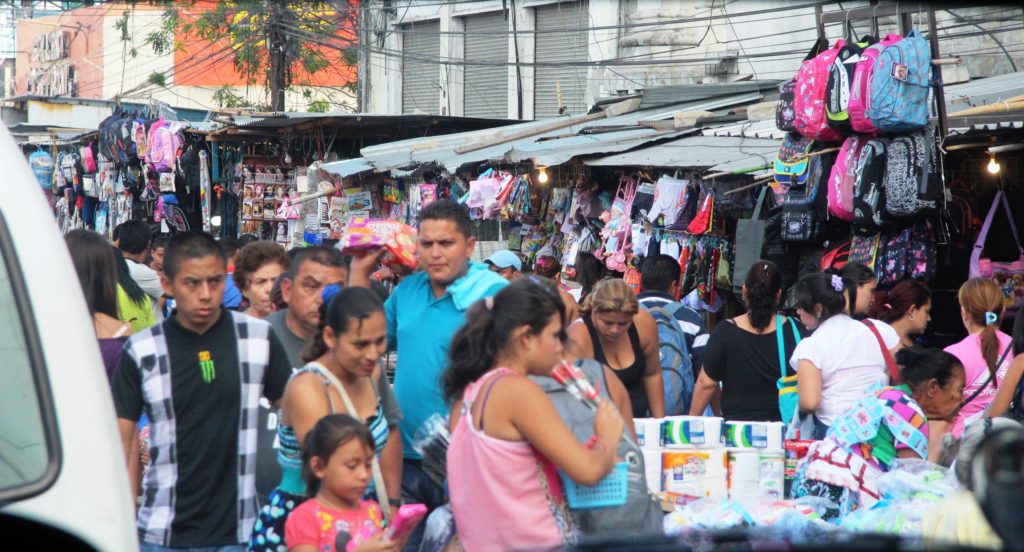
Katarina yearns to be self-sufficient. Her church has been very supportive of her, but she is at the point of no longer needing financial assistance from them. She and her godmother share their story with various groups– each from her own perspective and each with a realistic but positive outlook. The message is that, yes, we can help a family in need until that family is able to help themselves. Don’t be afraid to reach out and make a difference in the life of someone vulnerable and in need.
We ask Katrina, “Knowing what you know now, would you make the same decision to come here to the US?” Without the blink of an eye or a moment’s hesitation she responds with an unequivocal, “Yes. It was dangerous, but if I let something stand in my way, I would still be in El Salvador. I could be dead. I miss all my friends as well as my family. Here I have little free time because of all my jobs working in the fields and restaurants, but I hope to become legal here for the opportunities available for myself and child.
“I’ve tried to live by my motto – ‘Never let your past disrupt your future; the thread between your past and future is having no fear.’
Katarina is one of the fortunate immigrants. She MADE it into the U.S. We know of others who died at the hands of Mexican drug cartels and ended up in mass graves or disappeared on the way, whose families are heartbroken or have no closure. Katarina had memorized the phone number of her godmother who she knew would assist her and who speaks fluent Spanish. We know of others who were deported, remain in limbo in detention facilities, or live in hiding always looking over their shoulders for ICE. Katarina has a strong church and community network of support.
Most immigrants crossing the border are walking into an unknown world without benefit of language or support to assist them.
Katarina says “Gracias a Dios.” (Thank you, God) for her new life. She and her sponsors continue to work on behalf of others in her situation through the Lutheran AMMPARO initiative (Accompanying Migrant Minors with Protection, Advocacy, Representation and Opportunities.)
Katarina’s godmother, who has her own family and health issues to deal with, works tirelessly on behalf of those whose situations are like Katrina’s. Traveling two hours every month she has joined a local advocacy group that holds vigils at the detention center to show solidarity with those who have no voice. She defies administration policies and acts from her religious and moral sense of responsibility.
We thank Katarina and her godmother for their stories and efforts to help others in this situation.
Editor’s Notes: Those with all the resources at their fingertips continue to spread incendiary comments and punish the immigrants themselves via deportation. Efforts threatening to remove federal aid to “sanctuary cities” that show humanitarian efforts, and threatening parents and sponsors who show empathy preceded the wake-up call of dividing families at the border itself. Meanwhile the hard-working, young immigrant woman we focus on in this story, Katarina, with barely an extra dime in her pocket, is willing to take the risk and reach out to embrace and connect with other immigrants in need to assist and support them and do so with unwavering and relentless optimism and energy. Perhaps this is what it will take: one person acting with compassion toward another person through grassroots organizations.
Families we interview send their youngest and/or most physically fit family member who may have the best chance to survive the long trip. They may sell every possession they have to pay the exorbitant cost of thousands and thousands of dollars for that family member’s passage toward the border for presumed safety in order to protect him or her. It took Katarina and her family nearly two months to get to the border only to end up in a detention facility and her husband deported.
It is also common knowledge by those making the trip north that Mondays and Tuesdays are the days drugs cross the borders. Thursdays and Fridays are the days undocumented immigrants cross. Homeland Security, ICE, border patrols, and mafia all appear to work together on this system, awaiting those crossing. “80% of women and girls who cross Mexico to the U.S. border are raped on the way.” (Tell Me How It Ends, Valeria Luiselli)
Each immigrant has a name. Each immigrant has a story. Each immigrant has a reason for leaving his or her country. I add to that, each immigrant deserves a life of respect and dignity; to be treated as a person with rights. Carlos, Anita, Miguel, Claudia, Luis, Alma, Dimas, Lucy, Damian, Celia, and all the countless others worldwide have stories similar to Katarina’s.
Katarina is caught between two countries – each one hostile in different ways. As an American citizen, I personally am deeply embarrassed and ashamed of the treatment she receives in the one she entered.
